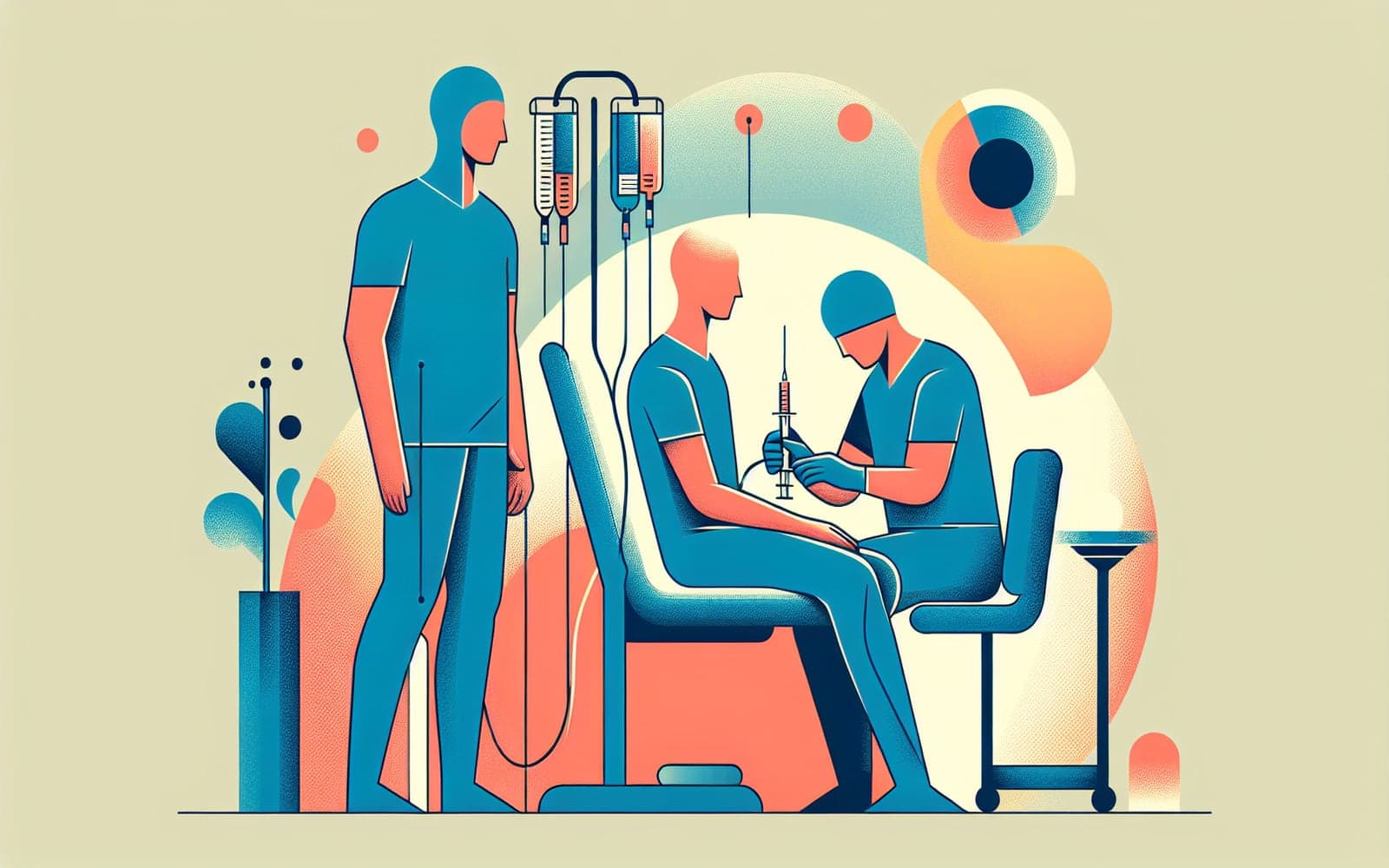Preparing for Your Lumbar Puncture: A Step-by-Step Guide
Preparing for Your Lumbar Puncture: A Step-by-Step Guide
Be Ready
If you're scheduled for a lumbar puncture, proper preparation can help ensure a smooth procedure. This guide will walk you through what to do before, during, and after your spinal tap.
Contents
- Before the Procedure
- During the Lumbar Puncture
- After the Procedure
Before the Procedure
First, inform your doctor about all medications you're taking, especially blood thinners. You may need to stop certain medications before the procedure. Arrange for someone to drive you home afterward. On the day of the procedure, wear comfortable, loose-fitting clothing. Follow your doctor's instructions about eating and drinking; you may need to fast for a few hours before the test.
During the Lumbar Puncture
You'll be asked to lie on your side or sit up, curling your body forward. The doctor will clean your back, numb the area, and insert a thin needle between your vertebrae. You may feel pressure but shouldn't feel pain. Try to relax and stay still. The procedure usually takes about 30-45 minutes.

After the Procedure
You'll need to lie flat for a few hours after the procedure to reduce the risk of headache. Drink plenty of fluids to help replace the removed spinal fluid. You may have a mild headache or back pain for a day or two. Avoid strenuous activities for at least 24 hours. Contact your doctor if you experience severe headache, fever, or numbness.
FAQs
Can I eat before the procedure?
Follow your doctor's specific instructions.
How long will I need to rest afterward?
Usually a few hours, but follow doctor's advice.
When can I return to work?
Most people return the next day.
Will I need pain medication?
Mild pain relievers are usually sufficient.
You've Got This
With proper preparation and care, most people get through a lumbar puncture with minimal discomfort.
Additional References
- Ellenby MS, Tegtmeyer K, Lai S, Braner DA. Videos in clinical medicine. Lumbar puncture. N Engl J Med 2006; 355:e12.
- Williams J, Lye DC, Umapathi T. Diagnostic lumbar puncture: minimizing complications. Intern Med J 2008; 38:587.
This article has been reviewed for accuracy by one of the licensed medical doctors working for Doctronic.











